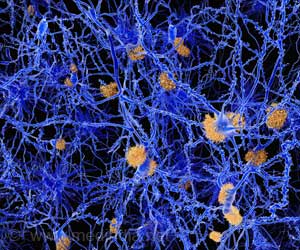New therapeutic molecules developed could reverse memory loss linked to depression and aging.

‘New therapeutic molecules can reverse memory loss associated with depression and aging. Scientists developed small molecules that enter the brain, activate the target cells and reverse the cognitive deficit of memory loss. These molecules could help fight memory loss at the beginning of Alzheimer's disease.’





These molecules not only rapidly improve symptoms, but remarkably, also appear to renew the underlying brain impairments causing memory loss in preclinical models. These findings were presented today at the American Association for the Advancement of Science (AAAS) Annual Meeting in Washington DC."Currently there are no medications to treat cognitive symptoms such as memory loss that occur in depression, other mental illnesses, and aging," says Dr. Etienne Sibille, Deputy Director of the Campbell Family Mental Health Research Institute at CAMH and lead scientist on the study.
What's unique and promising about these findings, in the face of many failures in drug development for mental illness, is that the compounds are highly targeted to activate the impaired brain receptors that are causing memory loss, he says.
It took a series of studies - the most recent appearing in January 2019 in Molecular Neuropsychiatry - to reach this stage. First, Dr. Sibille and his team identified the specific impairments to brain cell receptors in the GABA neurotransmitter system. Then they showed that these impairments likely caused mood and memory symptoms in depression and in aging.
The new small molecules were invented to bind to and activate this receptor target. The idea was that they would exert a therapeutic effect by "fixing" the impairment, resulting in an improvement in symptoms. The molecules are chemical tweaks of benzodiazepines, a class of anti-anxiety and sedative medications that also activate the GABA system, but are not highly targeted.
Advertisement
"The aged cells regrew to appear the same as young brain cells, showing that our novel molecules can modify the brain in addition to improving symptoms," says Dr. Sibille. He expects to start testing the molecules in clinical research in two years. "We've shown that our molecules enter the brain, are safe, activate the target cells and reverse the cognitive deficit of memory loss."
Advertisement
Source-Eurekalert















